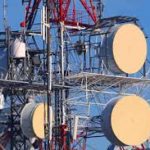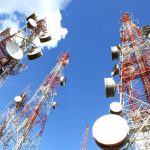At the Africa Tech Conference on Thursday, Charles Murito, Google’s head of government relations and public policy in Africa, called on African governments to classify fibre optic cables as critical infrastructure to protect the continent’s digital future. Murito highlighted the increasing threat to fibre optic networks from criminal syndicates targeting cables to steal equipment, such as batteries and generators, at telecom tower sites.
Murito stressed the importance of protecting terrestrial and subsea fibre cables, which are essential to Africa’s growing digital economy. He argued that by classifying fibre optic infrastructure as a critical investment, governments would enforce stricter penalties for those who damage or sabotage this vital resource. “When you classify that as a critical investment, then that ensures that if people maliciously damage that investment, there are stringent repercussions,” he explained.
Google’s Investment in Connectivity
Google has made substantial investments in African connectivity, including the Equiano subsea cable linking Africa to Europe and the recently launched Umoja cable connecting Africa to Australia. Murito and other industry leaders at the event noted that stronger protections for fibre infrastructure and mobile towers would encourage more investment in Africa’s tech sector.
Murito also advocated for better collaboration on cable-sharing agreements among internet service providers (ISPs), which could reduce data costs and improve accessibility across the continent. He highlighted the importance of policy “harmonization” to simplify cable installation processes, accelerate network expansion, and ultimately benefit telecom and tech companies operating in Africa.
Mobile Internet Access Challenges
While mobile internet access is critical to Africa’s economic development, Murito pointed out that only 27% of the African population had access to mobile internet as of last year. This low penetration is largely due to inconsistent regulations surrounding telecom infrastructure, which makes it difficult for companies to deploy and maintain fibre optic networks. Murito urged governments to streamline regulations and permissions to enable more efficient growth of these essential services.
Google’s Role in Africa’s Digital Economy
Google has been a key player in advancing Africa’s digital economy, contributing an estimated $1.8 billion to Nigeria’s economy in 2023. Through initiatives like Digital Skills for Africa and the Career Certificates Program, Google helped over 1.5 million young Nigerians acquire new digital skills last year. The company’s investment in subsea cables, such as Equiano, is poised to enhance broadband access, improve service quality, and support the digital economy in Nigeria and beyond. Equiano’s arrival in Lagos in 2022 marked a significant milestone in this effort, with plans to further improve broadband services by 2025.
Murito’s remarks underline the critical need for stronger protections and better infrastructure policies to fuel Africa’s digital transformation and attract more global investment into the continent’s tech sector.










